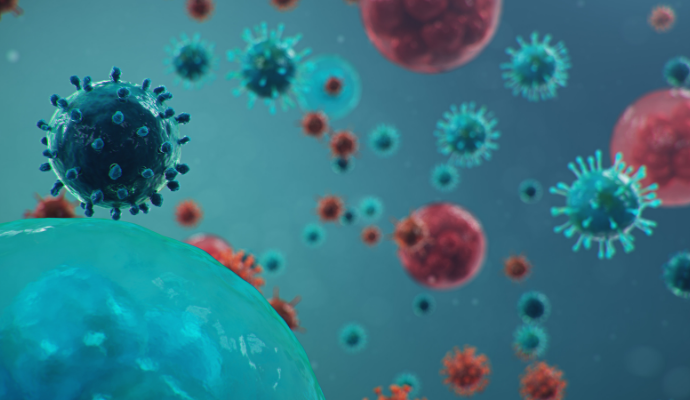Eli Lilly Enhances Local Access to COVID-19 Antibody Therapies
Eli Lilly will work with local health centers to launch dedicated infusion center locations in Indiana and provide individuals access to COVID-19 antibody therapies.

Source: Getty Images
- Eli Lilly and Company recently partnered with local health systems to enhance access to crucial COVID-19 antibody therapies.
The partnership will work to launch dedicated infusion center locations in northern and southern Indiana to provide individuals with access to the COVID-19 treatments.
"Throughout the implementation of our COVID-19 antibody clinical development program, we have identified multiple approaches to address many of the challenges this virus has presented, including complexities experienced with intravenous administration during the pandemic," Rob Metcalf, senior vice president of clinical development at Eli Lilly and Company, said in the announcement.
"We are pleased to share our insights with the goal of enabling health systems to quickly provide access to the COVID-19 antibody therapies needed to fight this devastating virus in high-risk symptomatic patients,” Metcalf continued.
One hospital in southern Indiana, Ascension St. Vincent Evansville, opened a dedicated infusion center to serve high-risk COVID-19 patients.
Eli Lilly and Company has also partnered with Community Health Network, Eskenazi Health, and Franciscan Health on an infusion center serving central Indiana, and with Saint Joseph Health System, Beacon Health System, and Goshen Health System on an infusion center in northern Indiana.
So far, these infusion centers have helped to eliminate treatment barriers by delivering COVID-19 antibody therapies to over 1,700 coronavirus patients living in Indiana who are high risk.
"We're thankful for the opportunity to collaborate with our health system partners and Lilly to serve these high-risk COVID-19 patients. This partnership has allowed us to bring COVID-19 treatments to high-risk Hoosiers quickly and efficiently," said Robin Ledyard, MD, chief medical officer of Community Health Network.
"It's important to provide this essential option for these patients as we work together to battle this devastating disease,” Ledyard continued.
Eli Lilly and Company stated that it will share insights with governments, health systems, and other stakeholders from these infusion centers to help other locations open and serve COVID-19 patients.
Multiple neutralizing antibody therapies have been granted emergency use authorization by FDA for the treatment of mild to moderate COVID-19 in high-risk patients.
In March, Eli Lilly and Company and AbCellera produced their first COVID-19 antibody treatment, bamlanivimab, three months after AbCellera and the Vaccine Research Center at NIAID identified it from a blood sample taken from one of the first US patients who recovered from COVID-19.
In mid-November, FDA issued an emergency use authorization for bamlanivimab.
The authorization allows healthcare providers to administer a single dose of bamlanivimab to infected patients 12 years of age or older as long as they weigh 88 points. The treatment can also be administered to patients who are at high-risk of severe COVID-19 or hospitalization.
But FDA did not authorize the antibody treatment for use in hospitalized patients or patients who require oxygen therapy due to the virus.
Last week, Eli Lilly and Company found that two of its COVID-19 neutralizing antibodies reduced coronavirus-related hospitalizations and deaths in high-risk patients by 70 percent in a Phase 3 study.
Patients received 2,800 milligrams of bamlanivimab (LY-CoV555) and 2,800 milligrams of etesevimab (LY-CoV016) together. The drug combination demonstrated statistically significant improvement on all key secondary endpoints, reduced viral load, and boosted symptom resolution.
And across all 1,035 patients in the BLAZE-1 trial, there were only 11 adverse events in patients taking the therapy and 36 events in patients taking the placebo.
Throughout various clinical trials, Eli Lilly and Company has collected safety and efficacy data in more than 4,000 participants treated with either bamlanivimab alone or bamlanivimab and etesevimab together.
A January JAMA Network Open study also found that among non-hospitalized patients with mild to moderate coronavirus, treatment with bamlanivimab and etesevimab was associated with a statistically significant reduction in COVID-19 viral load at Day 11.
